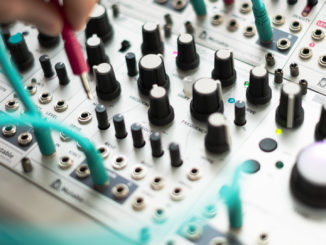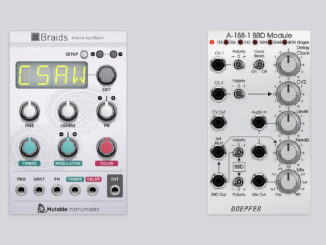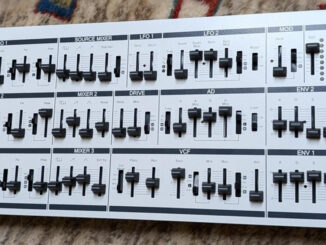Xena is a remake of Mutable Instruments’ open-source 6-voice hybrid polyphonic Synthesizer Ambika with updates by Michigan Synth Works.
In 2022, Emilie Gillet, better known as Mutable Instruments, left the Synthesizer market. Most people know the developer for her innovative, best-selling Eurorack modules such as the Clouds, Rings, and Plaits. Many people forget that there was also a Mutable time before the modules.
Emilie started with desktop instruments, including the Shruthi mono synth or the Ambika poly synth. Both are super exciting synths that were only available as DIY projects. Today, Michigan Synth Works from the US brings Ambika back in a new modern version.
Xena Michigan Synth Works
Xena is a rework of the iconic Mutable Instruments Ambika DIY Synthesizer. Or should I talk about clone/replica since there was already an original version. It is certainly a remake.
According to Michigan Synth Works, Xena has the same features, except the construction is different. Unlike the previous DIY versions, it’s now fully machine-assembled with an updated layout and improved modern power supply.
Xena has 6 digital voices, consisting of two oscillators per voice, featuring 36 oscillator algorithms, including wavetables. This is supported by a sub-oscillator which is also configurable as a transient designer. There is also a pre-filter overdrive and bit-crushing effect.
Replaceable Filters
Then, the filters what made Ambika so special. Just like the little brother Shruthi, you can change the filter cards on the Ambika and Xena. You can choose between three different cards during your order: a 4-pole filter, a 4-pole SMR OTA-based, or a 2-pole state-variable multimode filter.
A little downer: the characterful Polivoks filter card is not available in the list. However, you can get them from other dealers on the market. From here it goes in a VCA section.
On the modulation side, you get three ADSR envelopes, 3 patch-level LFOs, and a voice-level LFO. The LFOs have multiple waveforms and various functions.
The modulators are controlled via a modulation matrix with 14 slots and four modulation modifiers. Besides this, you get an arpeggiator, a note sequencer, and two step sequencers per part.
Another highlight of the original Ambika and the remake Xena is its flexible voice structure. The synth has 6 voices that are not fixed but are freely configurable. A single patch can have 6-voice polyphony, six independent mono parts, or even two layers of 3-voice poly synths synths. Unison patches and many more configurations are possible.
Further, you can store your patches, programs, multis, and other patch data (undo/redo)… on a micro-SD card.
Connectivity
On the back, you get full 5-pin MIDI in/out, a mix output, a volume knob, independent outputs for the six voices, and a power supply input.
First Impression
That’s good news. The Ambika has been somewhat forgotten in recent years, although it is a mighty, versatile poly synth. The synth didn’t appeal to many people because it was a DIY project only. The Xena could change that and get into more studios with a second attempt. And great price MSW!.
Xena is available now for +/- 371,95€ + tax + shipping from Michigan Synth Works from the US. Until December 4, 2023, you can get it for 334,76€ during their BF sale. Schneidersladen lists it for 478€ in Europe.
More information here: MSW






I have a handmade Ambika and love it! Would like to see it in a compact professional enclosure like this, but my money is going in too many directions already.
Anyway, Ambika is a very versatile synth that has its own character. And it can do a lot of things that usually only very expensive synthesizers can do. However you will have to reckon with the primitive digital oscillators. These aren’t your high resolution, aliasing-free oscillators. They’re gritty, crusty old things and you’ll have to use your wits and your ears to make it sound it’s best.
thanks for your input 🙂
Just a quick clarification: Since this is a new format for Ambika, the original size voice cards will NOT fit so you cant use 3rd party cards at this time. We are looking at the polivoks filter down the road and there will be a template for the voice cards at some point as well.